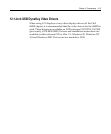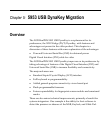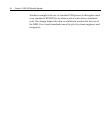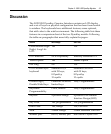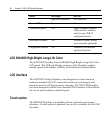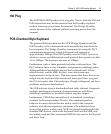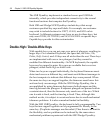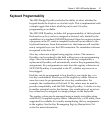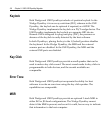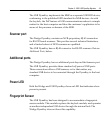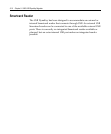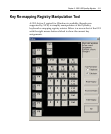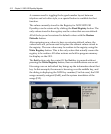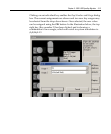
Chapter 5: 5953 USB DynaKey Migration 5-7
Keyboard Programmability
The 5953 Wedge DynaKey includes the ability to select whether the
keypad should be telephone or calculator style. This is implemented with
a simple toggle that selects which layout is used. No other
programming is available.
The 5953 USB DynaKey includes full programmability of the keyboard.
Each and every key can be re-assigned as desired, only limited by the
capabilities of a standard USB-HID keyboard. Based on registry entries,
a program on the PC sends a complete keyboard layout matrix to the
keyboard firmware. From that moment on, the firmware will send the
newly assigned keys over the USB connection. No translation software
is required in the host PC.
New key values are assigned using registry entries. This means a
DynaKey can be replaced in the field without any extra programming
steps. Once the terminal has been set up with key assignments, a
replacement DynaKey will automatically receive the programmed key
assignments. Key assignments are sent from the registry whenever an
NCR USB DynaKey is connected to the PC, whether at power-on or
hot-plugged.
Each key can be programmed to be a dead key, one single key, or a
two-key combination. Most keys will be single key values. However
some keys may be programmed as a two-key combination. For
example, the combination of Shift and F1 key values may be used to
provide compatibility with the 5953 Wedge DynaKey. A double-zero key
is another potential use for this feature. Any combination of up to two
key values may be assigned to a single plunger on the keyboard.
The registry values can be managed using a simple text editor along
with the O/S supplied registry editor. Alternatively, a GUI utility (non-
supported) is available for visually manipulating the key assignments
in the registry. See the Key Re-mapping Registry Manipulation Tool
section for more information.



